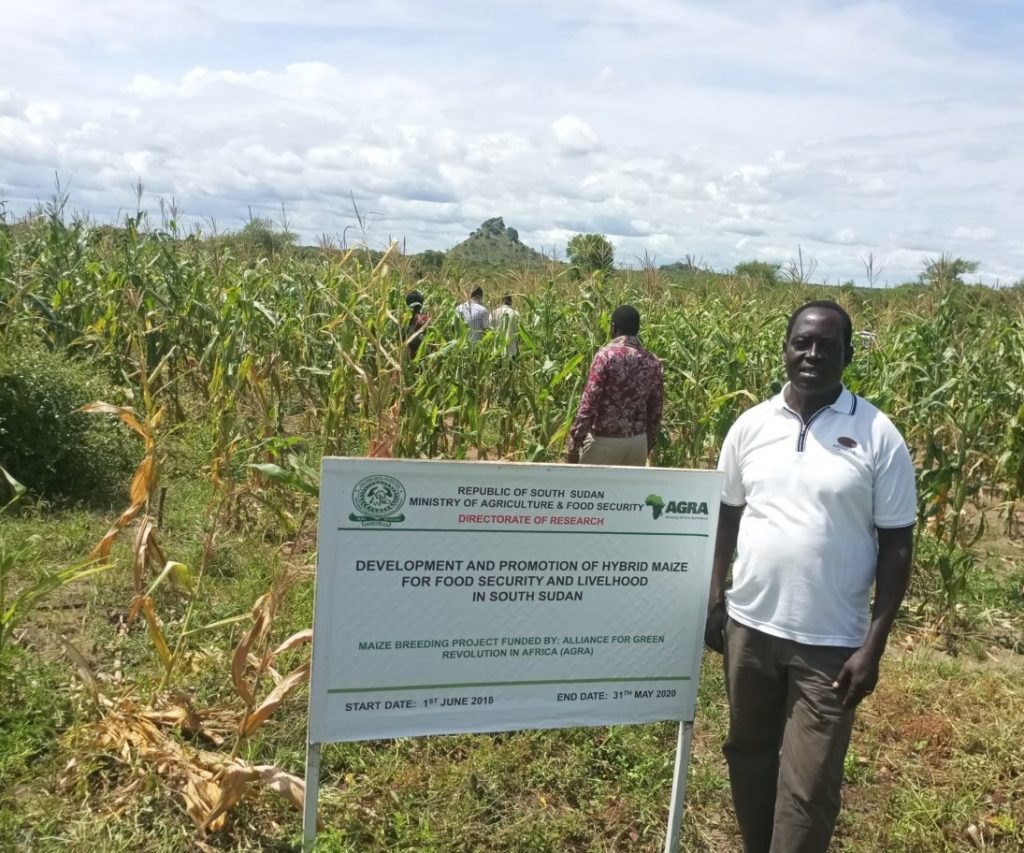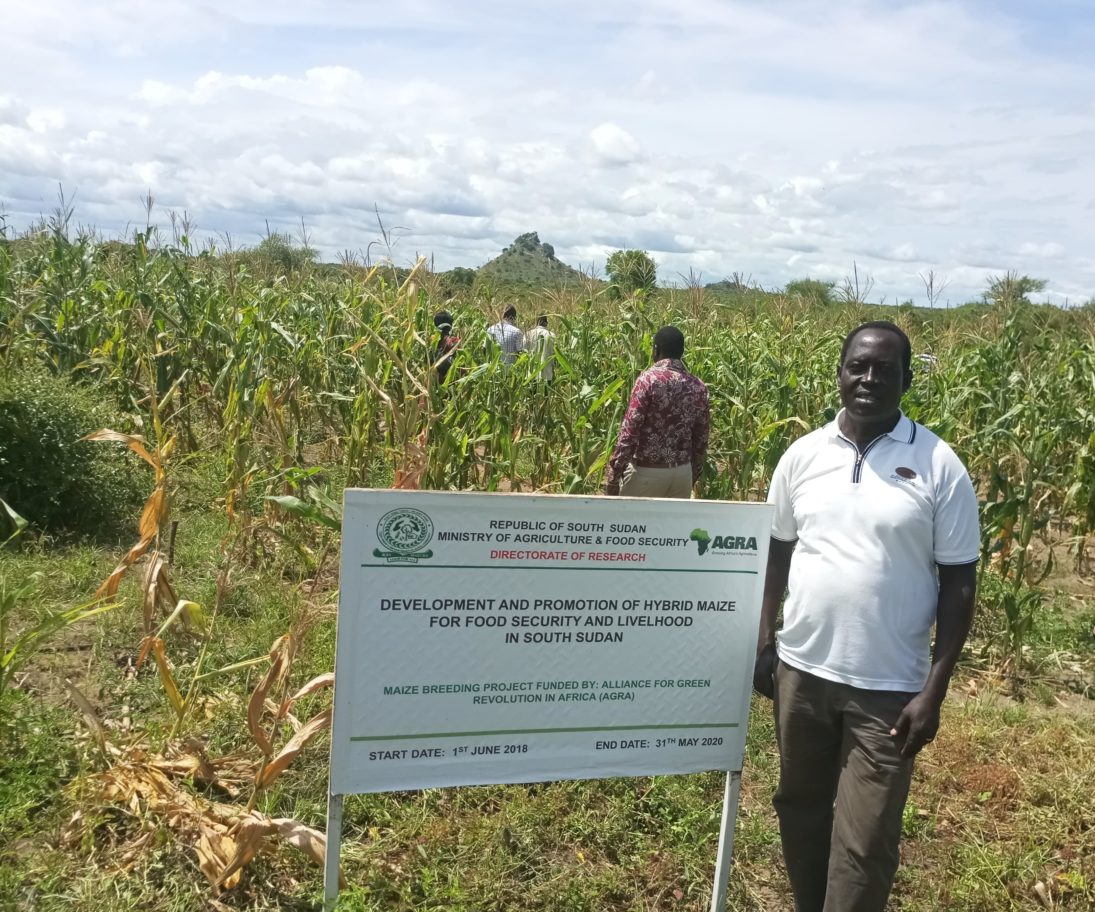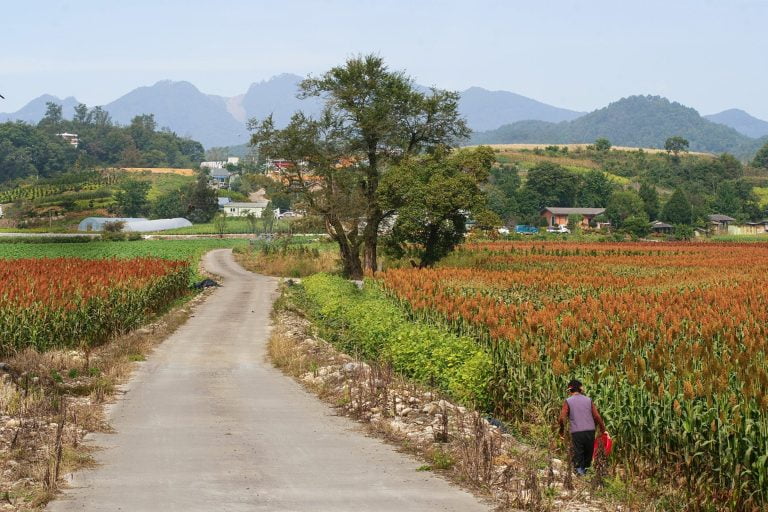For the first time in history, farmers in South Sudan will now be able to grow four different hybrid maize varieties customized for their country’s environs, a move that experts believe will double or even triple the yield of the crop on their farms from the current 1.5 metric tons per hectare.

South Sudan’s farmers have for a long time depended on seeds from neighboring countries, either multiplied by a few existing seed companies in the country or distributed by humanitarian agencies. The productivity of these seeds was low as they were not adapted to local conditions.
Luka Atwok Opio, a senior maize breeder at the South Sudanese Ministry of Agriculture who bred the new varieties said that this is a milestone for a country that has for ages depended on low yielding Open Polinated Seed Varieties (OPV).
“The foundation seeds for the four new varieties will now be distributed to seed companies for seed multiplication enabling farmers to access certified seeds in the next season or two seasons,” said Opio.
According to the South Sudan Country Manager for AGRA, Justin Miteng, the release of these hybrid varieties is timely because the capacity of the Ministry of Agriculture and Food Security has been sufficiently developed to monitor quality and ensure their purity. ‘In addition, through AGRA support, a system of extension through Village based Advisors (VBAs) and a network of agro-dealers have been established to ensure these varieties reach the farmer,’ said Miteng .
Generally, hybrid seeds are bred by crossing pollen from say, one maize variety with a different one. The main target is to take advantage of positive traits found in both parents such as drought tolerance, high yield, early maturing, and sometimes people consider the taste and color.
The new hybrids have been developed through the work of the Alliance for a Green Revolution in Africa (AGRA) – with the support of various partners, notably the Embassy of the Kingdom of Netherlands to South Sudan – aimed at building functional seed systems in Africa. Support in this project covered the testing of the hybrids, production of early generation seed and linkages with the seed companies. Luka Opio’s training at both Msc and PhD levels was also supported by AGRA.
Considering that such seed development programs take time to yield results – sometimes up to 10 years based on AGRA experience in working in 18 countries in Africa, this is a blockbuster moment for South Sudan’s agriculture.
“Building a functional seed system takes time and much longer in a country like South Sudan that has been through conflicts. This a great day for us and especially for the smallholder farmers in South Sudan” said Dr. Jane Ininda, a breeding expert from AGRA.
Released alongside the new hybrid maize varieties were three new common bean varieties, bred by Susan Tokwiny, also supported through the AGRA capacity building program to study plant breeding at Makerere University in Uganda. The bean varieties are resistant to diseases, have a short cooking time, and hence saves women labor; and have a good taste.
The release of these 7 new plant varieties brings to 37 the number of varieties released and listed in the plant variety catalogue in South Sudan. AGRA is proud to have supported the development of 32 of these varieties.
To enhance food productivity in Africa, AGRA has trained 700 agricultural specialists at Masters and PhD levels. Beyond this, AGRA has supported the development of 15 private seed companies that now produce over 2,000MT of seed annually that is now being used by over 200,000 smallholder farmers, doubling their yield.
“The Food and Agricultural organization (FAO) of the UN(FAO) in South Sudan procures over 8000MT per year, most of which are imported. From now on, FAO is committed to purchase at least 25 percent of all their seed needs from national seed companies,” said Meshack Malo, FAO South Sudan.



